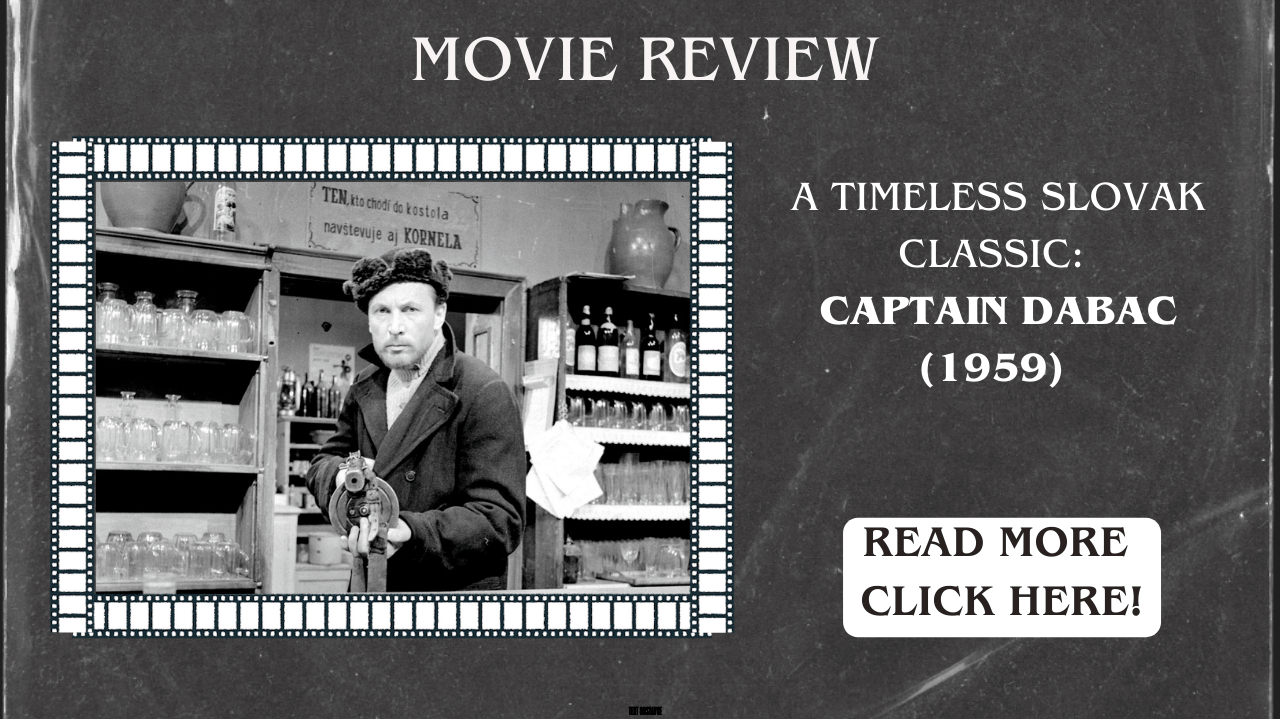The 1959 Slovak war drama Captain Dabac, directed by Paľo Bielik, is a cinematic masterpiece that explores the moral and psychological complexities of war. Set during World War II and the Slovak National Uprising (SNP), the film follows Captain Vladimír Dabač, a Slovak officer serving on the Eastern Front. Witnessing the atrocities of fascism, he becomes disillusioned with the cause he is forced to support. Upon returning to Slovakia, Dabač joins the resistance movement, aligning himself with the SNP. However, his solitary and impulsive nature often puts himself and his comrades at risk. His internal conflict—his unwavering belief in justice clashing with personal flaws—adds depth to his character and highlights the nuanced realities of wartime heroism.
Captain Dabac is more than a war film; it’s a critique of individualism during collective struggles. The movie portrays Dabač as a heroic yet flawed character, showcasing his courage, resilience, and the struggles of his personal demons, including issues with alcohol. His internal battles mirror the broader challenges faced by partisans, who operated in a world of constant danger, uncertainty, and betrayal. The film also vividly captures the chaos and brutality of war. Memorable scenes, such as mass executions of civilians and the iconic moment where Dabač "prescribes pills against fascism," underscore both the horrors of conflict and the resilience of those who resisted. The portrayal of the uprising's underground resistance, where trust was scarce, adds an intense layer of suspense and realism.
Director Paľo Bielik masterfully blends large-scale battle sequences with intimate character moments. The action is gripping, from epic clashes involving soldiers and war machinery to tense skirmishes in forests and villages. The film's technical execution, given its time, is impressive, with authentic set designs and a gripping atmosphere that immerses viewers in the world of 1940s Slovakia. Ladislav Chudík delivers a standout performance as Captain Dabač, bringing depth and humanity to the character. His portrayal of a brave yet troubled man grappling with his ideals and shortcomings is both compelling and relatable. The supporting cast, including Ctibor Filčík and Zdena Gruberová, adds richness to the narrative, portraying a range of characters from partisans to collaborators.
Captain Dabac remains a classic of Slovak cinema, particularly within the genre of films about the Slovak National Uprising. Its powerful storytelling, memorable scenes, and nuanced characters have left a lasting impact on audiences. For many, it is a film that not only entertains but also educates, serving as a reminder of the courage and sacrifices made during a pivotal moment in Slovak history. Whether viewed as a war drama, a psychological study, or a historical reflection, Captain Dabac resonates with audiences even decades after its release, making it a timeless work that continues to inspire and provoke thought.














